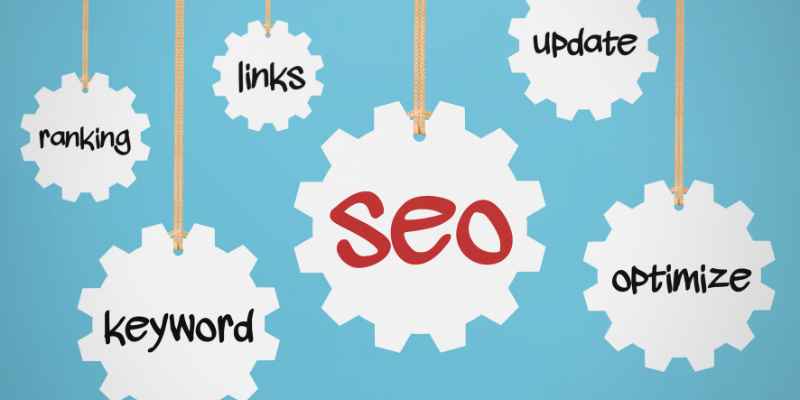Every day, 3.5 billion searches happen on Google. That’s over a trillion searches a year! [Problem] But here’s a stunner: a large chunk of businesses still haven’t tapped into the power of search engine optimization. They’re leaving traffic, leads, and revenue on the table.
In our fast-paced, digital-first world, having an online presence isn’t just beneficial—it’s essential. Yet, many companies grapple with visibility. They have stellar products and services but remain in the shadows of the web, lost on the umpteenth page of search results. It’s a missed opportunity, a digital goldmine waiting to be discovered.
This is where the immense potential of an SEO business comes into play. With the rising demand for online visibility, starting an SEO business can be your ticket to a profitable venture. By bridging the gap between businesses and their online audience, you’re not just starting a business; you’re launching a lifeline for countless companies. Let’s dive deep into how you can tap into this lucrative market and kickstart your very own SEO business.
1. Understanding the Basics of SEO
Search Engine Optimization (SEO) isn’t just a buzzword; it’s a science and an art. At its core, SEO is about enhancing a website’s visibility in organic search resultsWith over 200 factors influencing Google’s algorithm, it’s more than just inserting a few keywords.
Every component, from on-page elements like meta tags to off-page tactics like link-building, contributes to a site’s SEO health. And here’s a number that’ll get you thinking: 75% of users don’t even scroll past the first page of search results. If a business isn’t on that coveted first page, they’re essentially invisible.
Remember the last time you searched for a restaurant or a shoe brand? Did you go to the second page of Google? Probably not. That’s the power and importance of SEO.
But the world of SEO isn’t static. Google tweaks its algorithm thousands of times a year. In 2019 alone, there were over 3,200 changes. If that doesn’t underline the importance of staying updated, I don’t know what does. As the algorithm evolves, so must our strategies. Today’s top-ranking tactic might be tomorrow’s penalty. To run a successful SEO business, it’s crucial to stay ahead of these changes, adapt, and innovate.
2. Market Research and Identifying Your Niche

Before diving headfirst into the vast ocean of SEO, it’s essential to first take a look at the lay of the land. Did you know that there are over 5 million businesses actively advertising on Google? This underscores the immense competition, but also the vast opportunity that lies ahead.
Think of it like opening a restaurant. Would you simply start serving dishes without first checking what the locals like, or what other restaurants in the area are offering? In the same way, beginning an SEO business requires a keen understanding of the current market.
Start by analyzing the competition. Look at the other big players in the industry, their service offerings, pricing models, and client testimonials. This will give you an idea of what you’re up against and where there might be gaps in the market.
Then, gauge the demand. [Data] A recent survey showed that 61% of marketers believe improving SEO and growing their organic presence is their top inbound marketing priority. This highlights a clear demand. But who are these marketers? What industries are they from? What size businesses do they run?
This brings us to one of the most critical steps: deciding on a niche. While it’s tempting to offer your services to everyone and anyone, the truth is, specialization can set you apart. Consider specializing in sectors like health, finance, or e-commerce. Or maybe focus on local businesses, startups, or multinational corporations. By narrowing down your target audience, you can offer tailored, expert solutions that cater specifically to their needs.
In the end, knowing your market inside-out isn’t just a step; it’s your foundation.
3. Creating a Business Plan
Crafting a blueprint for your SEO business isn’t just about daydreaming big; it’s about laying down a tangible, actionable path to success. And yes, even in the dynamic digital world, old-school business plans are gold.
Let’s begin with your objectives and goals. What do you envision for your SEO business? Businesses with clear, written goals are 50% more likely to achieve than those without them. So, whether it’s acquiring 10 new clients in the next six months or becoming the go-to SEO expert in the health industry, jot it down.
Budgeting is up next. Starting an SEO business may not require a brick-and-mortar setup, but it isn’t free either. A 2019 study found that most SEO freelancers and agencies spend between $1,000 to $5,000 during their initial setup phase. This includes costs for tools, training, website setup, branding, and more.
On the recurring front, expenses might be for premium SEO tools, ongoing training, content creation, and marketing efforts. And let’s not forget about projecting those expected profits. Determine your pricing structure, be it hourly rates or package deals, and match it against your estimated client intake.
Now, let’s talk forecasting.Imagine if a majority of your clients are from the e-commerce industry and a new algorithm change hits, affecting e-commerce sites the most. What’s your backup plan? Similarly, as your client base grows, so will their demands and expectations. How will you scale your services or team? Anticipating growth is exciting, but being prepared for potential challenges is crucial.
In essence, your business plan is more than just a document; it’s the North Star guiding your SEO ship through calm and stormy waters alike.
4. Gathering Essential Tools and Resources

Entering the realm of SEO without the right tools is akin to sailing the seas without a compass. Precision, efficiency, and success in SEO are closely tied to the tools and resources you wield.
Firstly, let’s talk about SEO tools. Every aspect of SEO, from understanding user intent to tracking website performance, requires specific tools.In 2020, businesses allocated around 40% of their SEO budget just for tools and software. Tools like SEMrush or Ahrefs can help you dive deep into keyword research, backlink analysis, and competitor benchmarking. Meanwhile, platforms like Google Analytics and Google Search Console are indispensable for tracking site performance and understanding user behavior.
Now, onto building a team. As your SEO business grows, so will the volume of work. And while SEO tools can automate much of the task, the human touch is irreplaceable in strategy and creativity. If a client’s website faces a sudden drop in rankings, it’s not just about looking at the data; it’s about interpreting it and devising a recovery strategy. You’ve got three main routes:
- Hiring Full-Time: Great for building a core team that aligns with your business culture and objectives. However, it comes with responsibilities like benefits, training, and office space (if you’re not remote).
- Freelancers: Platforms like Upwork or Freelancer can help you find skilled professionals for specific tasks, offering flexibility and often, cost-effectiveness. However, ensure consistent quality checks and maintain strong communication.
- Software Solutions: Beyond the standard SEO tools, several software options can automate reporting, client communication, or even content optimization. Tools like Clearscope or SurferSEO can give you an edge, especially when handling multiple clients.
In the end, it’s about finding the right balance. [Example] If you’re just starting, you might wear multiple hats – the strategist, the content creator, and the analyst. But as clients pour in, leveraging freelancers and software can be your stepping stone before committing to full-time hires.
5. Setting Up Your Business Entity
The foundation of any sustainable venture, beyond just skills and knowledge, is its structure. The way you set up your SEO business entity has implications on everything – from how much you pay in taxes to your level of personal liability.
Now, the first thing you’ve got to mull over is the business structure. There’s no one-size-fits-all here. Each structure comes with its own set of benefits and challenges:
- Sole Proprietorship: This is the simplest form and involves just you. Ideal for SEO consultants starting out. You have direct control but also bear all the responsibilities and risks. [Fact] As of 2019, 73% of small businesses in the U.S. were sole proprietorships.
- LLC (Limited Liability Company): A popular choice for many budding entrepreneurs. It offers a mix of flexibility and protection. Your personal assets are generally shielded from business debts, and it’s easier in terms of paperwork than corporations. Tax benefits are also significant.
- Corporations: This is when things get bigger. If you’re thinking of expanding your team rapidly or seeking external funding, a corporation might be the way to go. It offers the maximum protection but comes with more administrative work and complexity.
- Once you’ve picked a structure, it’s time to register your business. The exact process varies based on your region, but in most places, you’ll need to pick a unique business name and file some paperwork with a governing agency.
- Don’t forget about licenses and permits. Depending on where you’re located, you might need specific business licenses to operate legally. Check local and state regulations.
- Lastly, handling taxes. In 2018, the IRS reported that about 1 in every 3 business owners faced penalties for not understanding tax obligations. Taxes for businesses, especially when you’re starting out, can be a labyrinth. Consider hiring an accountant or using tax software tailored for businesses. Ensure you understand if and how you need to pay quarterly taxes, and keep immaculate records.
Remember, setting up your business entity right isn’t just about legality – it’s about building a foundation for growth, sustainability, and trust in the marketplace.
6. Building a Strong Online Presence

In the world of SEO, if you’re not online, you’re invisible. Establishing a robust online presence isn’t just a necessity – it’s your business card, your reputation, and your portfolio, all rolled into one.
· Creating a Professional Website:
It all starts here. Your website is your digital storefront. Invest time and effort to make it user-friendly, mobile-responsive, and visually appealing. And, of course, ensure it’s optimized for search!
Remember, if an SEO expert’s website isn’t ranking well, potential clients might doubt your abilities. Did you know that [Fact] 75% of users admit to making judgments about a company’s credibility based on their website’s design?
· Highlighting Your Services:
Don’t make clients guess. Clearly list what you offer, whether it’s on-page optimization, backlink strategies, local SEO, or content creation. Break down each service, so potential clients understand what they’re getting and the value it provides.
· Case Studies and Client Testimonials:
Show, don’t just tell. Demonstrating your past successes gives potential clients confidence in your abilities. Create detailed case studies showing how you helped a business improve their online visibility, traffic, and conversions. And always ask satisfied clients for testimonials. [Example] Imagine a local bakery’s website traffic increasing by 300% after you optimized their site. A testimonial from them can be gold!
· Integrating a Blog:
This isn’t just an added bonus; it’s a must-have. Your blog showcases your expertise, keeps your website fresh, and helps in ranking for a broader set of keywords. Regularly post about the latest SEO trends, algorithm changes, or general digital marketing tips. Your readers, who could be potential clients, will see you as an authority in the field. Did you know that [Fact] companies with blogs produce, on average, 67% more leads per month than those without?
In the end, remember this: Your online presence is your brand’s voice in the digital age. Make sure it speaks clearly, offers value, and genuinely represents what you and your SEO business stand for.
7. Pricing Your Services

Deciphering how to price your services can be one of the trickiest parts of starting an SEO business. But with the right strategy and understanding, you can strike the perfect balance between profitability and value for your clients.
Understanding Different Pricing Models:
Hourly: Charging by the hour can be beneficial, especially for ad-hoc tasks or consultations. This model is transparent and can help build trust with clients wary of fixed pricing.
- Monthly Retainer: This is a popular model in the SEO world. Clients pay a set fee monthly for an array of services. It provides steady income and can foster long-term relationships.
- Project-Based: For larger, clearly defined projects, a project-based fee might make the most sense. It allows you to assess the full scope of work and provide a singular quote.
Deciding on a Pricing Strategy:
- Competitive Analysis: Begin by researching what competitors in your niche or area are charging. Tools like SEMrush or Ahrefs can give you insights into the SEO services your competitors might be offering. Remember, however, to always assess the quality and breadth of their services in comparison to yours.
- Perceived Value: Sometimes, it’s not just about the tangible service you’re offering, but also about the value the client perceives. This could stem from your personal brand, your team’s expertise, the tools you use, or even the added value services like monthly reporting and client communication. For example, if a company knows that top-tier brands trust you, they might be willing to pay a premium.
Imagine you’re just starting, and your competitor, with five years in the business, charges $100/hour. Instead of severely undercutting them, you could charge $80/hour, positioning yourself as a cost-effective yet quality alternative.
According to a survey by Credo, as of 2021, the average SEO expert charged between $100 to $150 per hour. For monthly retainers, most were in the range of $2,500 to $5,000 for comprehensive services.
Pricing isn’t static. As you grow, gain more testimonials, and further your expertise, don’t hesitate to reassess and adjust your rates. Remember, it’s a mix of art, science, and a dash of SEO intuition!
8. Crafting Effective SEO Packages

The beauty of SEO lies in its adaptability. Different businesses have different needs, and as an SEO service provider, your packages must reflect this diversity. By offering varied packages, you not only cater to a wider range of clients but also increase the likelihood of upsells as businesses grow.
Basic SEO Package:
Ideal for startups or small businesses aiming to get their feet wet in the world of SEO.
Features:
- On-page SEO audit
- Keyword research (up to 10 primary keywords)
- Basic link building (local directories, Google My Business setup)
- Monthly reports
Benefits: Offers foundational SEO essentials without overwhelming the client. Perfect for businesses with limited digital exposure or those testing the waters.
Intermediate SEO Package:
Tailored for mid-sized businesses or those ready to take their SEO game a notch higher.
Features:
- Comprehensive on-page and off-page SEO audit
- Keyword research (up to 30 primary keywords)
- Advanced link building strategies
- Content strategy consultation
- Bi-weekly reporting
Benefits: This package dives deeper, tackling more complex SEO strategies. It’s designed for businesses ready to invest more for tangible growth.
Advanced SEO Package:
A powerhouse package for enterprises or businesses with aggressive growth goals.
Features:
- Full-fledged SEO audit, including technical SEO
- Extensive keyword research and competitor analysis
- High-level link building (guest posts, influencer collaborations, etc.)
- Content creation and marketing strategy
- Weekly reporting with actionable insights
Benefits: For clients who demand the best, this package pulls out all the stops. It’s holistic, aggressive, and is tailored for major market players.
Custom SEO Packages:
Not every client will fit neatly into a pre-defined package. Some may require a mix of services from various packages.
Features: Completely customizable based on client needs.
Benefits: By offering tailor-made solutions, you position yourself as a flexible, client-first business. This fosters trust and often results in long-term collaborations.
According to a study by Ahrefs, 30.59% of SEO agencies have a starting package price below $1,000. However, clients investing more typically expect more personalized, comprehensive strategies, emphasizing the importance of tiered packages.
While predefined packages streamline operations, remember the power of customization. Sometimes, it’s the tailored touch that seals the deal!
9. Marketing and Client Acquisition

In the digital realm, visibility is currency. But in the overcrowded SEO business space, how do you ensure your brand gets noticed? It’s not just about visibility but about connecting and building trust. Here’s how you do it:
· Content Marketing:
Sharing valuable, actionable SEO insights through blogs, ebooks, or webinars.
Benefits: Brands you as an authority in the SEO space. A well-researched article can bring more credibility than a dozen ads.
Tip: Regularly update your content to reflect the latest SEO trends and algorithm changes. Google loves fresh content, and so do readers!
· Pay-Per-Click (PPC):
Use Google Ads or Bing Ads to position your business at the top of search results.
Benefits: Instant visibility. Ideal for new businesses or promotions.
For every $1 spent on Google Ads, businesses earn an average revenue of $2 (Google Economic Impact Report).
· Social Media Marketing:
Platforms like LinkedIn, Twitter, or Facebook can be gold mines for B2B services.
Benefits: Engage with potential clients, answer queries, and showcase client success stories.
A LinkedIn post showcasing a client’s growth due to your SEO efforts can be a powerful testimonial.
· Networking:
Attend SEO or digital marketing conferences, workshops, and webinars.
Benefits: Direct interaction with potential clients, partners, or even competitors. Often leads to collaborations or referrals.
Tip: Always have a crisp elevator pitch ready!
· Testimonials and Case Studies:
Nothing speaks louder than results. Showcase client testimonials and detailed case studies on your website.
Benefits: Provides social proof, building trust and credibility.
92% of customers read online reviews before making a decision (BrightLocal).
Word-of-Mouth:Happy clients are your best marketers.
Benefits: Personal recommendations carry a weight no advertisement can. They reduce the sales cycle and often bring in high-quality leads.
Word-of-mouth is behind 20-50% of all purchasing decisions (McKinsey).
Marketing your SEO business isn’t just about shouting the loudest. It’s about showcasing your expertise, building trust, and delivering consistent results. Every satisfied client, every successful campaign, and every insightful blog post contributes to your brand’s reputation in the digital space. Make them count!
10. Building Client Relationships
In the competitive landscape of the SEO business, winning a client is just half the battle. The other half? Retaining them. Building and nurturing relationships with clients isn’t just about delivering results; it’s about the journey of achieving those results together. Let’s dive deep.
· Setting Clear Expectations:
Begin with a detailed onboarding process. Understand their goals, and set realistic expectations.
Benefits: Avoids misunderstandings later. When both parties are on the same page, the journey becomes smoother.
Tip: Use SMART goals – Specific, Measurable, Achievable, Relevant, and Time-bound.
· Open Communication Lines:
Establish regular check-ins, whether weekly or monthly. Use tools like Slack, Zoom, or email to stay connected.
Benefits: Fosters trust. When clients feel they can reach out anytime, it builds confidence.
FAccording to PWC, 82% of consumers want more human interaction in the future. Communication is key.
· Providing Regular Reports and Updates:
Don’t wait for clients to ask. Proactively provide analytics, traffic metrics, and other pertinent data.
Benefits: Transparency. Regular updates highlight your efforts and show the client where their money is going.
A simple before-and-after SEO ranking report can be a powerful tool to showcase progress.
· Handling Feedback:
Welcome feedback, both positive and negative. Use it as a tool for growth.
Benefits: It not only helps improve your services but shows clients that their opinions matter.
Tip: Have a structured feedback mechanism. Surveys or feedback forms can provide invaluable insights.
· Making Necessary Adjustments:
SEO is dynamic. If something isn’t working, be ready to pivot.
Benefits: Demonstrates flexibility and a commitment to achieving the client’s goals.

96% of customers say customer service is crucial in their choice of loyalty to a brand (Microsoft).
Building a strong client relationship isn’t just about being a service provider; it’s about being a partner in their success journey. Remember, in the world of SEO, data is crucial, but relationships? They’re everything.
· Scaling Your SEO Business
Scaling a business is like climbing a mountain. You’ve reached one peak, but there are higher summits yet to conquer. In the ever-evolving landscape of SEO, standing still isn’t an option. You’ve got to think bigger. Let’s delve into the art of scaling your SEO venture.
· Recognizing the Right Time to Expand:
Like a surfer waiting for the perfect wave, knowing when to scale is critical.
Hiring More Staff:
When? When your current team is consistently overworked, or you’re turning down clients due to capacity.
Tip: Don’t just hire. Hire right. Skills are teachable, but culture fit? That’s gold.
Introducing More Services:
When? When current services are streamlined, and there’s a demand or gap in the market.
A HubSpot survey found that businesses with a broad service offering are 40% more likely to report a higher annual revenue than those with a limited range.
· Diversifying Your Income Streams:
Don’t put all your eggs in one basket. The world of SEO offers diverse avenues to monetize your expertise.
Offering Training:
Why? With the digital boom, there’s a surge in demand for SEO skills.
Example: Consider both online courses and in-person workshops. Platforms like Udemy have made it easier than ever.
· Consultancy Services:
Why? Not every business can afford an in-house SEO team. Offer your expertise as a consultant.
The U.S. management consulting market was worth $63.2 billion in 2019. Imagine the potential!
Branching into Other Digital Marketing Services:
SEO is a piece of the digital puzzle. Consider services like PPC, content marketing, or social media management.
Benefit: Offering bundled services can increase client retention. They get a one-stop-shop experience.
· Maintaining Quality While Scaling:
As you grow, it’s easy to lose sight of what got you here – quality.
Tip: Regular training sessions, feedback loops, and an unwavering commitment to standards can ensure you scale without diluting your brand’s essence.
Scaling is exciting. It’s a testament to your hard work. But remember, it’s not just about being bigger. It’s about being better, every single day.
Conclusion
Every time you type a query into Google, there’s a behind-the-scenes hustle of websites vying for your click. That’s the power and necessity of SEO in today’s digital world. Starting an SEO business isn’t just about capitalizing on a trend; it’s about acknowledging the enduring necessity of search optimization in the age of the internet. The potential? It’s vast, with every new website being a potential client.
But here’s the thing: diving into the world of SEO entrepreneurship is no casual swim – it’s a deep dive. The currents can be tricky, but the treasures below are worth the effort. For those standing on the brink, teetering between doubt and determination, remember this – every big player in the SEO game started with a single client, a single project, a single success.
Have you embarked on your SEO business journey? Maybe you’ve faced challenges, celebrated successes, or encountered surprising twists. Whatever your story, I’d love to hear it. Share your experiences in the comments below.
And if you’re on the fence, seeking guidance or pondering collaboration, don’t be a stranger. Reach out! Let’s harness the power of SEO together and shape the digital future.









